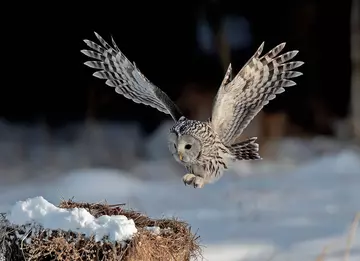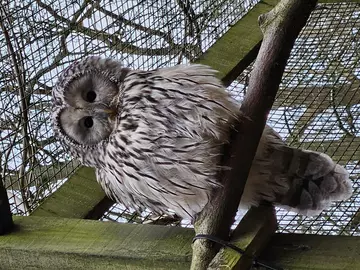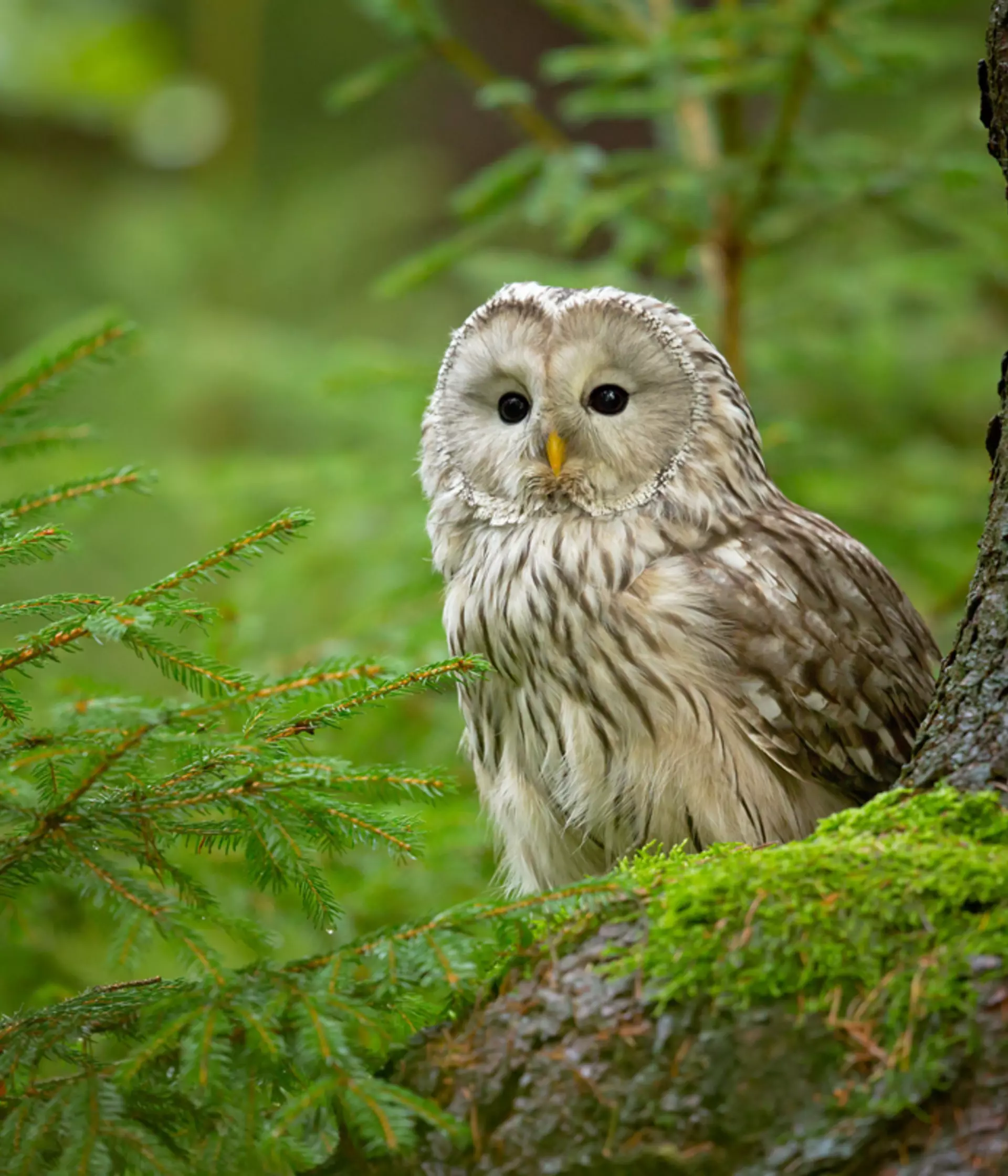
Ural owl hunting
Ural owls are mostly nocturnal hunters, and behind their feathers they have large ears for an owl (24 mm in length on the left and 27 mm on the right).
Ural owl diet
Ural owls mostly eat rodents (voles, rats, mice, shrews and hares).

Ural owls human attacks
The Ural Owl generally avoids humans in the wild, but if humans approach its nest she will defend it by striking the intruder from behind, claws extended aiming for the head and shoulders, with the resultant impact occurring at up to 40 km/h – the equivalent force of a 72 kg mass falling from a height of 1 m – hence the colloquial Swedish name of Slaguggla or “attacking owl”.

Ural owl size
50–62 cm in length, with a wingspan of 124–134 cm; males are smaller than females, weighing 500–950 g versus 570–1300 g
Ural owl habitat
These owls can be found in the mountains, forests and meadows of Europe, Russia, China and Japan.
Ural owl nesting
These camouflaged birds make their nest in hollow trees, holes in rock faces or anyone else’s nest they can commandeer. Owl chicks are called “owlets”
Clutch size 1 – 6
Incubation period : 27 – 34 days
